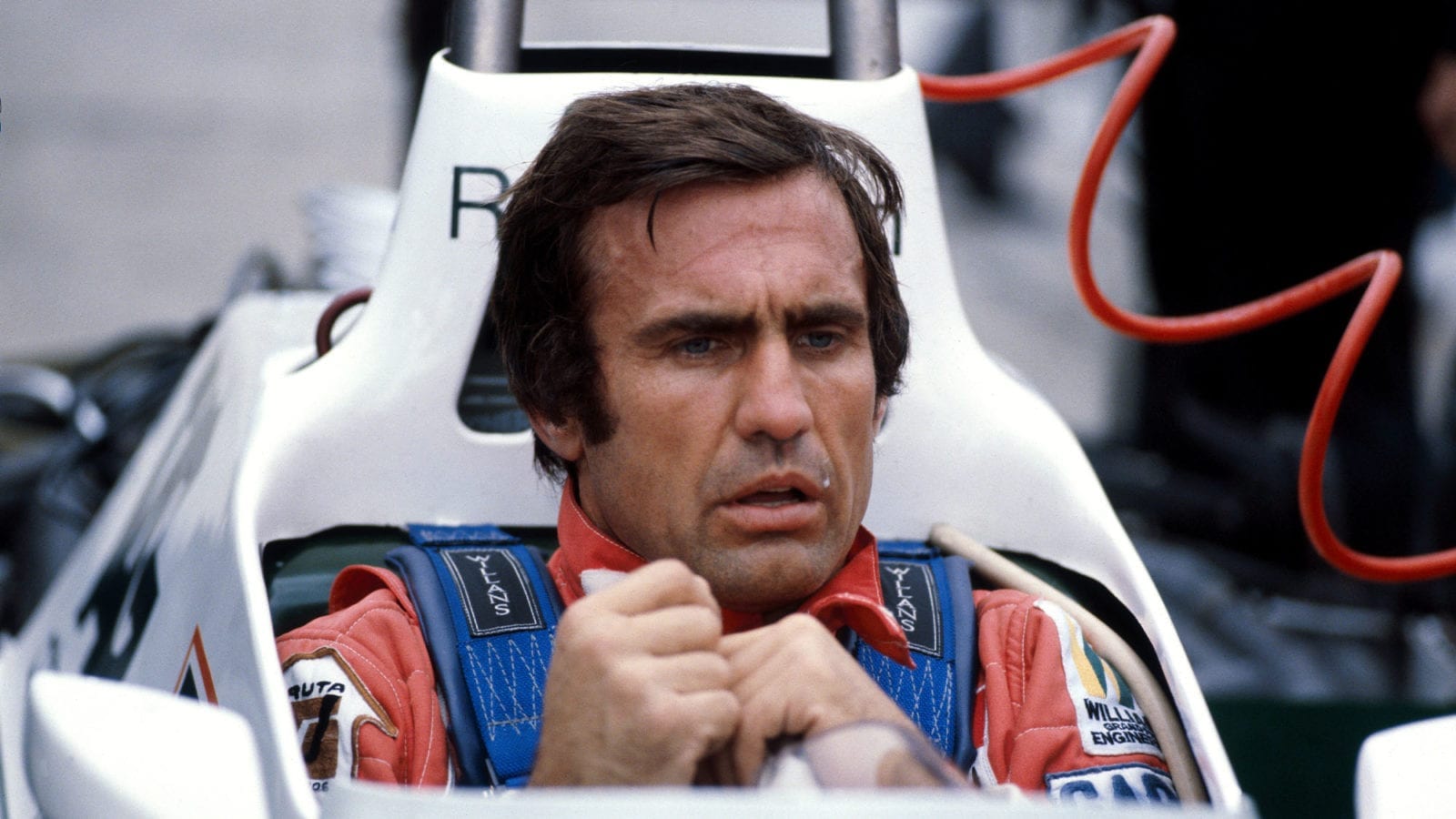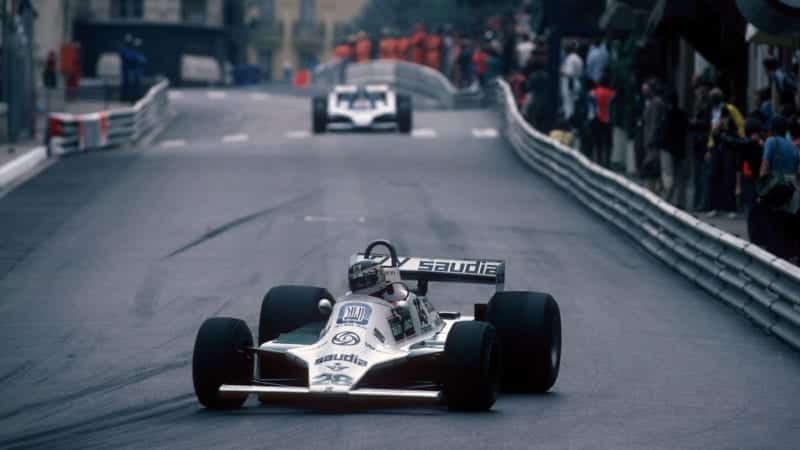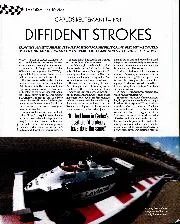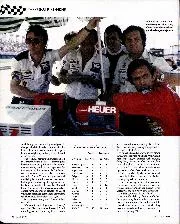In 1981 Carlos was very negative after we switched back to Goodyear from Michelin during the season. I think he was keen on the Michelins and thought he should have been consulted, but then he came second at Silverstone to lead the championship by 17 points. After the race he told Frank he didn’t think he’d score any more points that season, but we got the car sorted on the new Goodyears and he could readily have won that year’s title.
He was sometimes negative like that, not very outgoing, but a great guy and of course he was very good-looking – tall, Latin and moody. The girls used to swoon around him but he didn’t know how to deal with all that attention – quite the opposite of Alan. Everyone got on well with Carlos, and the picture above belies the fact that he and Alan were enemies, although it was probably taken in 1980.
“If things were perfect Carlos could transcend what seemed possible”
Las Vegas ’81 cemented Carlos’s reputation for being hard to understand. He took pole and his main title rival, Nelson Piquet, was suffering because of the heat and track conditions. But Carlos’s race was lacklustre and Nelson won the title by a single point. Afterwards Carlos disappeared back to Argentina. He had complained about the gearbox but we couldn’t find anything wrong except that we knew the clutch wasn’t releasing cleanly, and I suspect he could feel the dog rings. Between gear-changes there might have been a crunch, but they were undamaged.
If Carlos didn’t like the feel of the car mechanically it upset his whole approach. If the car was good he was stunning. He was an artist in the car really, and when things were perfect he could transcend what seemed possible. At Williams we were down-to-earth pragmatic types and it was hard to understand how he was.
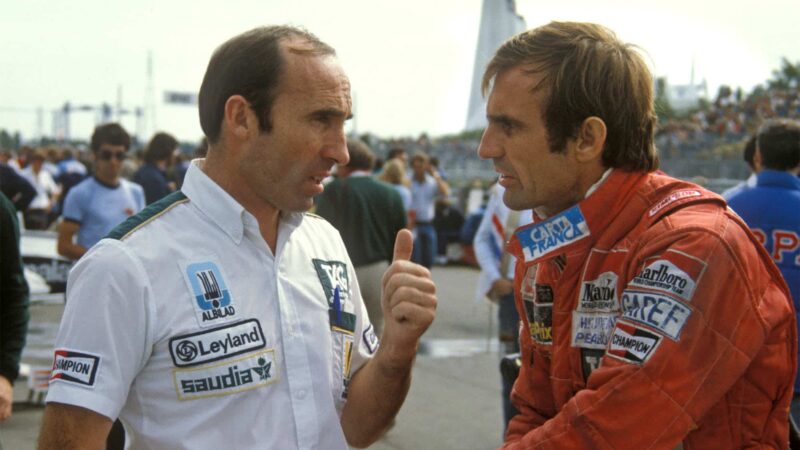
Reutemann and his Williams bosses struggled to see eye to eye at times
Grand Prix Photo
Jones let us know very late in 1981 that he wasn’t going to drive in ’82 and we had no idea if Carlos was coming back. We’d tested with Keke Rosberg and he’d been very quick, so Frank called Carlos to tell him we were considering taking Keke and what did he think? Carlos said: “ah, I don’t know Frank. I mean the Gucci briefcase, the Gucci shoes, the gold bracelets, the Rolex – I don’t know if he is serious.” He probably knew Keke was pretty quick.
Carlos returned for the first two races of ’82, but when the British reacted to the Falklands invasion he went back to Argentina. He wasn’t frightened of Keke or anyone, I think he’d just had enough. Carlos certainly was enigmatic to us and I think also for all the other teams he drove for, but he was one of the most interesting drivers ever to have come to Williams. Every now and then, when everything was just as he wanted it, he was unbeatable. But we did not get into that zone often enough for him to win the championships that his talent deserved.
